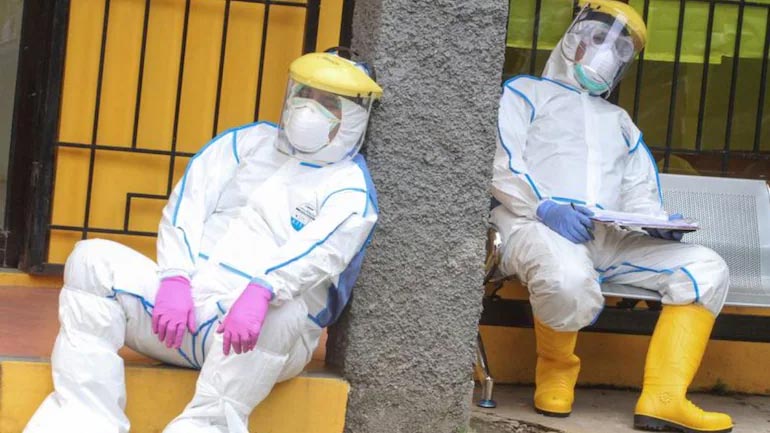Since the coronavirus emerged, the whole world has been battling a severe health crisis in the shape of a pandemic. As a result, frontline workers are dedicating their time and effort to control the situation and provide the public with quick aid and treatment. In the first row of these frontline workers stand the healthcare workers. They are the ones spending day and night curbing the deadly spread and treating the ailing. However, fighting such a grave battle comes at the cost of sacrificing your mental health. And, the world has been witnessing how the pandemic is affecting the mental well-being of everyone but most prominently the healthcare workers. For this reason, we are going to discuss ways to tackle stress amidst the pandemic.
1. Limit media exposure
The main reason for panic, anxiety and rising stress levels in frontline workers is the media. While media is necessary to educate you about the current world news, too much exposure to negative information can affect your mental health. Hearing about how bad the Covid-19 situation is around the world will only stress you more. Hence, to reduce stress, reduce and limit your media exposure to only when necessary. Try to deal with your daily life instead of thinking about the whole city, country, or the world. Focus on the tasks around you instead of focusing on what the future holds.
2. Divert your attention
By diverting your attention, we don’t mean that you shouldn’t focus on work. But, after work hours, avoid remaining glued to the television following every Covid-19 update. There are several disturbing news dominating every TV channel, such as anti-vaxxer protests, 5G conspiracy theorists, and whatnot. Such damaging misinformation and people who undermine healthcare workers’ contributions can deprive you of the motivation to work dedicatedly. A viable solution would be to indulge in some productive activity. While we all are isolating at home, why not utilize online resources to our advantage. You can continue your education by opting for an online healthcare degree and enhance your academic profile while boosting career prospects. It will help keep your mind off of work while helping you build your skillset.
3. Manage time slots
The heavy influx of patients has made it difficult for healthcare workers to remain attentive to their work hours. As a result, they have no time to rest and burn out their energy quickly, leading to high-stress levels. To cope with stress, you must manage your time slots. Coordinate with your supervisors and see how things can be handled in your absence. You may feel guilty for not serving people in such challenging times. However, it is crucial to gather your energy after a hectic day at work. Overworking will only burn you out.
4. Get enough sleep
The biggest reason for stress in any line of work is irregular sleep patterns and declining sleep quality. When you are active all day long working on the frontlines, you may have little time left to relax adequately. The only break your body and mind will take is when you sleep. Having a lousy sleeping routine can mess up this cycle and become a significant cause of stress.
To reduce stress, try to sleep and wake up at the same time every day. The disruption of your body’s biological clock “circadian rhythm” can pose adverse consequences for your health in the long run.
5. Eat well
Food is undeniably an essential fuel for our body. However, a growing misconception is that everyone needs a standard amount of calories. In reality, your calorie requirement depends on your profession, age, gender, etc. For instance, a healthcare worker juggling duties 24/7 will have a different calorie requirement than a person who remains seated at work. To reduce stress and increase your energy levels, always eat healthy and proper meals according to your body’s needs.
6. Exercise
Exercise happens to be the best stress-coping strategy out there. However, it doesn’t mean that you must hit the gym every day to cope with your stress during your busy routine. You can try going for a walk in the park, swimming, yoga, or whatever suits you. Additionally, being around nature and greenery and exercising in that environment does wonder to reduce stress.
If all of that isn’t possible, try doing quick stretches or meditation during your break time to give your mind and body an energizing break.
Conclusion
Dealing with stress during the pandemic may seem like the last thing on your mind, but it should be your priority. The healthcare sector is grappling to meet declining healthcare worker demand. Putting your mental health at stake will further worsen things for you and your facility. You have to stay active and deal with serious matters with a clear head. And for this, you must monitor and reduce your stress levels. Initially, avoid paying attention to every news, indulge in some productive activity, ensure good eating and sleeping habits, and exercise.


